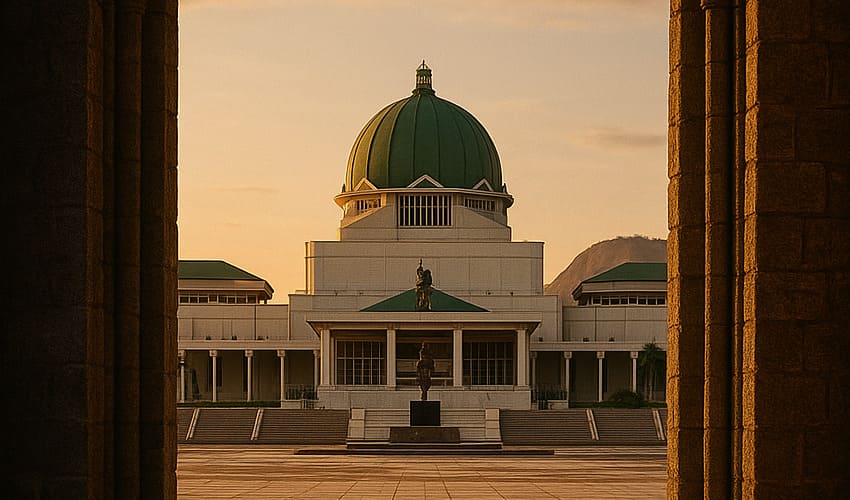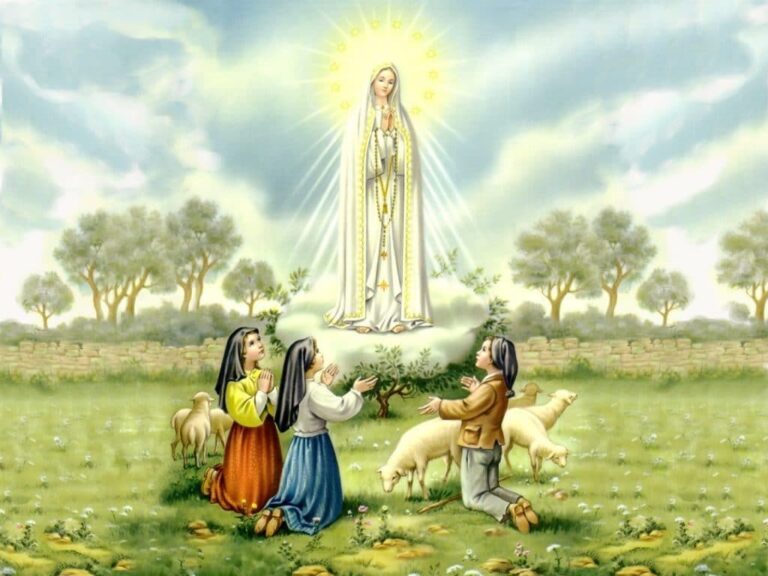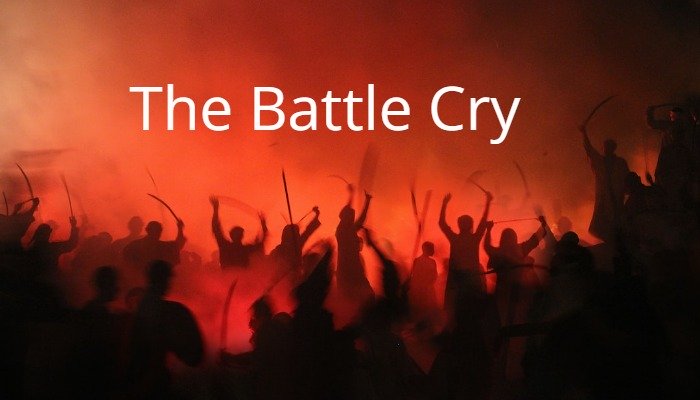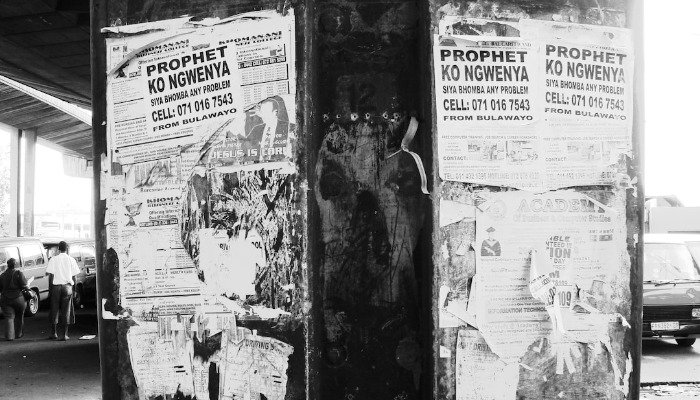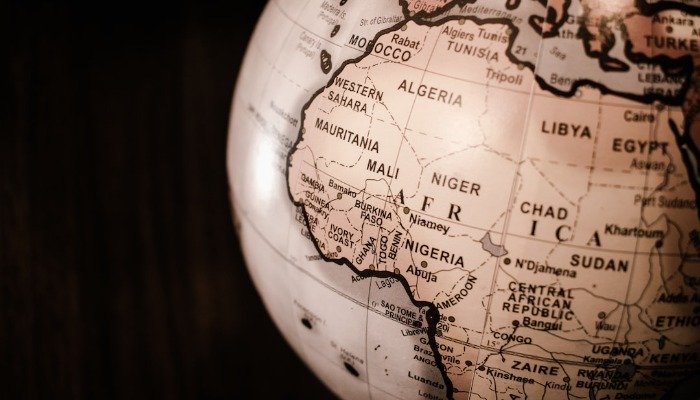Editor’s Introduction: In Nigeria today, the word “politics” often leaves a bitter taste. For many, it brings to mind corruption, power struggles, and a system far removed from the concerns of the ordinary person. This can lead people of faith to ask: Should I even be involved? Is politics just a ‘dirty game’ to be avoided?
In this new series for Agoradomus, “Politics: From the Eyes of the Church,” author Bro. Victor Ozioko invites us to take a step back. Before we can answer what our role should be, we must first understand what politics fundamentally is. In this first part, he explores the true meaning of politics, from its noble origins to its timeless consideration by the great thinkers of the Church.
More Than Just a ‘Dirty Game’
Politics is a term that can be used in many ways. Positively, we might hear of a “political solution,” implying a path of compromise and non-violence. Descriptively, it is often called “the art or science of government.”
Frequently, however, the word carries a negative connotation, especially in our daily conversations. The concept has been defined in various ways, with different views on whether its essence is conflict or co-operation. What is undeniable is that politics is the set of activities associated with making decisions in groups and managing power relations among individuals, such as the distribution of resources or status.
The methods deployed in politics are varied. They include promoting one’s views, negotiating with others, making laws, and even exercising force against adversaries. This practice of politics is exercised on every social level—from clans and tribes to modern local governments, from companies to sovereign states, and all the way to the international stage.
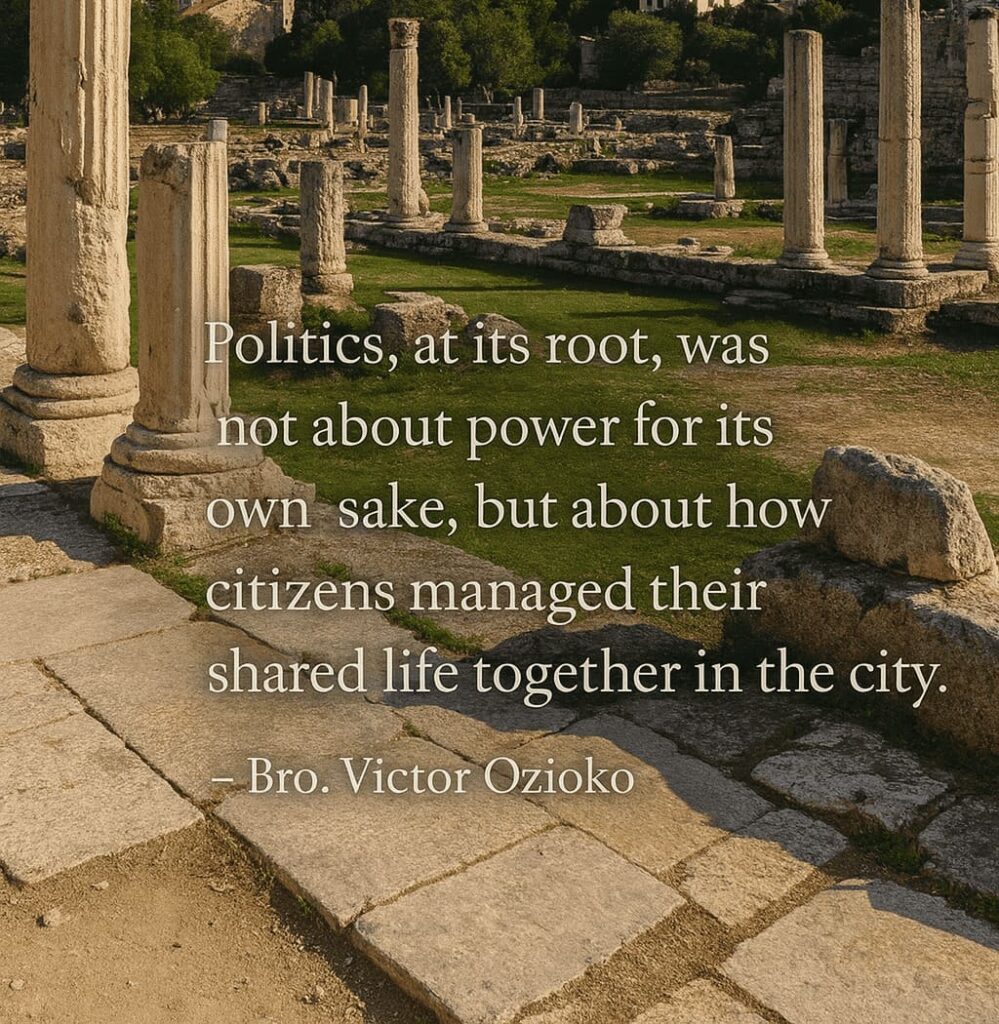
The Noble Origin: ‘Affairs of the City’
To truly grasp the concept, we must look to its origins. The Greek term for politics is “politika” (Πολιτικά), which beautifully translates to “affairs of the cities.”
This term comes from the word “politikos” (πολιτικός), meaning “of, or pertaining to citizens,” which itself is derived from “polites” (πολίτης), meaning “citizen.” At the very root of it all is the word “polis” (πόλις), meaning “the city.”
In ancient Greece, the polis was not just a place to live; it was the community, the centre of life, and the framework for human flourishing. Politics, therefore, was not originally about power for its own sake, but about how citizens managed their shared life together in the city. In Latin, the term is “politicus,” a direct inheritance from the Greek.
A Timeless Question for the Church
In modern nations, people often form political parties to represent their ideas and compete in elections. The framework that defines acceptable political methods within a society is its political system.
The history of this kind of political thought is ancient, with foundational works such as Plato’s Republic, Aristotle’s Politics, and Chanakya’s Arthashastra.
This conversation is not new to the Church. Far from it. Several prominent Church Fathers wrote extensively on political matters, reflecting on the complex interplay between faith and power. Notable examples include:
- Augustine of Hippo: In his most famous work, City of God, he directly addresses the relationship between the “earthly city” (the secular world and the state) and the “City of God” (the spiritual realm of the Church).
- Ambrose of Milan: As a powerful Bishop, Ambrose famously challenged the authority of the Roman Emperor, demonstrating the Church’s growing voice and moral influence in political affairs.
- John Chrysostom: A renowned preacher and Bishop of Constantinople, Chrysostom often used his platform to speak out against the moral failings of the elite and the powerful, including those in high political office.
These early Christian thinkers prove that contemplating the nature of politics and the Christian’s role within it is a deep and essential part of our tradition. They understood that the “affairs of the city” were, and always will be, the affairs of the people God loves.
Coming in Part 2: Now that we have defined our terms, Bro. Victor will explore how these foundational ideas challenge us to engage with the unique political landscape of Nigeria today. What does the “City of God” have to say to the “city of man” in Abuja, Lagos, or your own local government?
The Language of the City
The true meaning of politics is embedded in its Greek origins:
- Πόλις (Polis): The City / Community
- Πολίτης (Polites): The Citizen
- Πολιτικά (Politika): The Affairs of the City
Join the Discussion in the Agora
This series will explore the role of Christians in politics. To begin, let’s reflect on our own starting points.
What was your first impression of the word “politics” before reading this article?
Does learning about its original meaning—”the affairs of the city”—change your perspective?
Why do you think it’s important (or not important) for people of faith to discuss politics?
Share your respectful perspective in the comments below.

